Michela Wrong, Your Distorted Perspective on Eritrea Doesn't Hold Water
Michela Wrong's biased narratives about Eritrea are part of a propaganda campaign. Eritrea remains resilient and self-reliant.
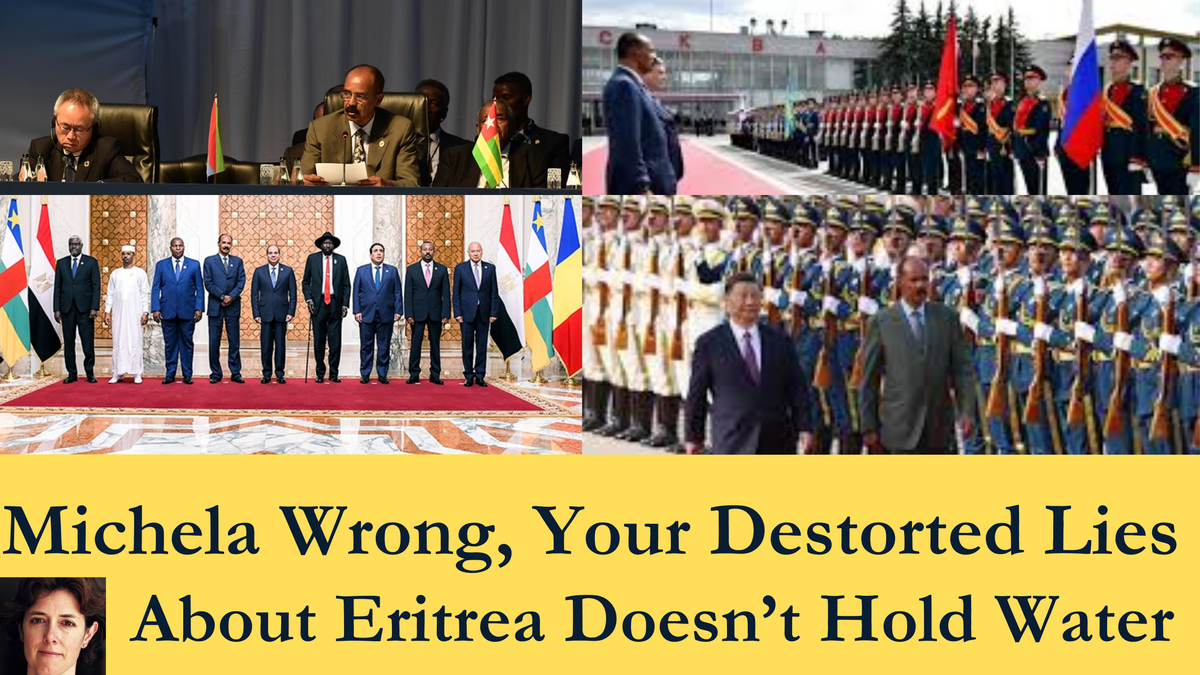
By Amanuel Biedemariam, September 29, 2023
Pretext:
This article was initially penned almost a decade ago, back in March 2014, in response to an article by Michela Wrong that portrayed Eritrea as the "Hermit Kingdom." Now, the spotlight has shifted to President Isaias Afwerki, with another sensationalized story drawing parallels between President Isaias and North Korean leader Kim Jong Un, dubbing it "The Surprising Triumph of Africa’s Kim Jong Un."
Yet, the underlying message and intentions remain crystal clear: the objective is to vilify a successful African leader by unjustly labeling him a brutal dictator despite evidence to the contrary. President Isaias's so-called "crime" is his defiance and success in the face of Western hegemony. I am reposting this article because its message remains relevant, as the tactics employed by these detractors have remained unchanged. Only the headlines have evolved.
Call Select Concierge Travel for Tickets to Eritrea.

Africa's Tragic Saga: Western Powers' Relentless Campaign of Destabilization and Exploitation.
Across the African continent, Western actors have methodically and ruthlessly destabilized nations in the most brutal ways imaginable. The term "holocaust" falls short of capturing the full extent of these atrocities. Unfortunately, this strategy has been successful for these actors, significantly harming the people of Africa without any accountability. Consequently, Africa has become a playground for these actors to exploit and pillage at their discretion, resulting in unending suffering and the systematic erosion of social fabrics that will affect generations of Africans.
At this juncture, one can reasonably conclude that Africa is under the control of Western powers, primarily including the United States, France, Great Britain, and their NATO allies. A select few wield control over Africa's vast resources, while the continent remains embroiled in conflict, often instigated, manipulated, directed, and funded by Western entities. Once a nation is destabilized, there is little it can do to resolve the instability, as external forces continually fuel the fire. This bleak picture characterizes the state of affairs in Africa today, spanning from Somalia to Nigeria, Sierra Leone, and North, South, East, and West Africa.
To the average Westerner, the methods employed by these powers may remain primarily concealed. These tactics are cunning, deceptive, seemingly innocuous, yet deadlier than a military battalion. Over time, however, the methodology is becoming increasingly apparent, making it easier to challenge or defend against.
The modus operandi for dealing with target countries involves dispatching young Western individuals to the nation in question. These individuals assume roles such as journalists, humanitarian workers, or members of nonprofit organizations, gradually earning the local population's trust. Once trust is established, the next step is to become experts on the country or subject matter by researching its people, religion, tribes, social structures, history, and political landscape. They then author books and gain recognition as authorities on the subject in the West.
These "experts" often gain access to significant publications and news networks, such as The Guardian, the BBC, and The Wall Street Journal. As issues related to the countries they've immersed themselves in arise, they are called upon by mainstream media to provide expert commentary. Consequently, U.S. representatives frequently cite articles written by these self-proclaimed experts during congressional hearings and debates in publications like WSJ or The Guardian to support their cases. Thus, opinions, views, policy decisions, resolutions, and significant international actions are shaped by these silent influencers.
Once these experts achieve a certain level of recognition, the country or subject they've focused on becomes a cause célèbre, ready to be exploited freely. Various organizations remunerate them as contributors, engage in speaking engagements, and are invited to testify on matters related to the subject. As a result, their words and actions carry more weight than the voices of the people directly affected.
When policies and actions these experts have advocated for are ready for implementation, Hollywood stars, musicians, and prominent business figures are enlisted to champion the cause before the unsuspecting public. The stage is set, and the narrative is crafted. George Clooney's involvement in the Sudan and South Sudan issues is a prime example of this approach.
This is an effective means of stifling the voices of the affected population. While a country may boast freedom of the press and expression, these rights amount to something with access. To compound matters, the people affected find themselves misrepresented by these supposed experts who have co-opted their voices, effectively positioning themselves as spokespersons for the nation. This arrangement is designed and serves as a convenient partnership between government officials, the State Department, and congressional representatives to advance Western agendas in countries of interest, including Eritrea.
Eritrea has become a target, and these self-proclaimed experts have diligently applied these tactics for some time. Notable figures in this campaign include Dan Connell, an author, lecturer, reporter, and self-declared Eritrean expert; Martin Plaut, a former South African apartheid-era army conscript, BBC and Chatham House contributor, and apologist for the late genocidal dictator Meles Zenawi; and Michela Wrong, an author and reporter for BBC, Reuters, and Financial Times. None of these individuals has set foot in Eritrea for over a decade.
A recent conference held in London and chaired by Martin Plaut, (who you can find more information about by checking the provided link,) featured Dan Connell and Michela Wrong (although she was absent), and provided partial evidence of how this methodology is applied. It was a notably awkward setting, with a retired Caucasian man and a former apartheid-era conscript attempting to lecture Eritrea to Eritreans, the sons and daughters of former Eritrean liberation fighters and products of the revolution. These young individuals challenged the experts effectively.
These self-proclaimed experts are among the most visible figures attempting to supplant the voices of the people of Eritrea in the name of justice or any cause they purport to align with.
A select few drive the agenda of destabilizing Eritrea, with the individuals mentioned earlier leading the charge. They often cross-reference their work to create an illusion of a consensus. Their campaigns and writings are coordinated with a handful of individuals who frequently travel to Ethiopia, collaborating with Ethiopian authorities to pursue Ethiopian agendas. They associate with figures like Dr. Bereket Habtesllassie, who has expressed a desire to see Eritrea re-colonized by Ethiopia. They frequently cite materials produced by individuals like Paulos Tesfaghiorghis, who primarily resides in Addis Ababa, Ethiopia; Meron Stifanos; Elsa Chyrum, who is closely associated with the human trafficking of Eritreans and also maintains a significant presence in Ethiopia; and Selam Kidane, who was featured in a BBC story by Martin Plaut when she migrated to the UK as a teenager with her sister. Selam is a product of the former Ethiopian dictator, Mengistu Haile Mariam, and cannot conclusively prove her Eritrean heritage.
In summary, these individuals are at the forefront of the anti-Eritrean campaign. This response focuses on Michela Wrong in light of her recent article, "Is Africa’s hermit kingdom heading toward a military coup?" Her piece barometer their current status and reflects their desperate mindset. It also inadvertently reveals the progress of their agenda and future approaches. It is essential to note that their tactics are not novel or groundbreaking.
Michela Wrong's Propaganda: A Disturbing Misuse of Journalism
There is no value in reiterating anything she wrote, as it amounts to a deliberate propaganda campaign aimed at demonizing and justifying rebellion. It's a disgraceful misuse of the journalistic profession when a reporter affiliated with major outlets such as BBC, Reuters, and Financial Times resorts to pure propaganda. Her work lacks any semblance of genuine reporting and is clearly part of a broader campaign orchestrated by anti-Eritrean elements.
Nonetheless, it is crucial to occasionally provide honest insights to inform those who might be vulnerable to her deceptive writing. It's important to expose her as an arrogant bigot who failed to fabricate a false image of Eritrea despite years of trying. It's essential to highlight her inability to grasp the essence of the Eritrean people and her failure to accurately interpret the data she collected about Eritrea with any semblance of humanity or humility. It's imperative to alert Eritreans to the fact that she is a ruthless individual ready to see the blood of innocent Eritreans spilled. It's crucial to make it abundantly clear to the world that Michela Wrong exemplifies the true nature of the anti-Eritrea agenda rooted in fascism.
Her message is unambiguous: either change in Eritrea occurs peacefully or gradually, or it must be forced through violence. This display reflects desperation and a lack of objectivity. How can a reporter get away with disseminating such an incendiary message under the umbrella of a major news organization? Michela Wrong last set foot in Eritrea over eight years ago. Yet, she boldly asserts, "There have been nearly 13 years of lockdown in Eritrea," and claims Eritrea is akin to "Africa’s North Korea," with militarism and defiant isolationism that has supposedly vanished from global headlines. Is that really the case?
Wrong wrote, "Eritrea has virtually disappeared from global headlines?" Perhaps Wrong believes her reporting needs to be more deserving of global attention. Why dedicate so much attention to a country that seems to have vanished from the world map? Or she could temporarily shed her reporter's persona, allowing her true, biased colors to shine through. Alternatively, she might not see reality, blinded by her fraudulent narratives.
The reality is that Eritrea is far from isolated, locked down, or resembling North Korea. Eritrea is a warm and inviting nation, brimming with gracious and hospitable people who would extend a helping hand and even offer their own bed to provide comfort. Just ask the Sudanese who flock to Eritrea in droves for their honeymoon, drawn by the weather, landscapes, and warm hospitality. Inquire among the hundreds of thousands who visit Eritrea year-round to celebrate independence, participate in festivals like the Sawa Festival, and enjoy the holidays.
Clearly, Wrong's inability to enter Eritrea has clouded her objectivity, leading her to believe that Eritrea is isolated from the world, contrary to reality. What, then, is Michela Wrong's assessment based on? Did she miss the writings of Ambassadors Herman Kohen, Shinn, and Lyman? What are her thoughts on numerous articles from significant newspapers that label Eritrea as one of the world's fastest-growing economies? What grounds does she base her characterization of Eritrea as a "Hermit Kingdom" on?
Eritrea will prosper in ways no other African country has simply because it stands on an unshakable foundation laid by its people. Eritreans are enlightened, intelligent, discerning, and adept at understanding the world's workings. They are resilient, committed, and willing to sacrifice to position Eritrea among the world's best.
Eritrea will flourish because its people recognize the abundance of untapped resources within their borders and are determined to ensure that future generations of Eritreans can harness them while thwarting the ambitions of fascists and neo-colonialists, who are descendants of those Michela Wrong seemingly aligns with.
Eritrea will thrive because its foundations are grounded in a pragmatic approach to life aimed at securing the nation and its way of life, focusing on maintaining a healthy and educated populace capable of self-sustainability, regardless of external challenges.
Diplomatically, Eritreans know that their nation occupies one of the world's most strategically vital positions. Eritrea's geographical location is of paramount global significance, making it a target for various interests at any given time. With this understanding, Eritreans exercise judicious diplomacy, carefully selecting partners with the best intentions for their nation. It's diplomacy based on strength and mutual respect, evident in Eritrea's diplomatic missions worldwide, where relations are established to focus on development and progress. Compromise is not an option, as Eritrea's leaders and its people have an unwavering commitment to safeguard the hard-earned independence of their nation.
Michela The Wrong: It's one thing to remain unaware and make inadvertent errors in judgment. However, it becomes a grave offense when one intentionally engages in misleading, misinforming, misrepresenting, and fabricating events and realities related to people and nations. Unfortunately, it often proves impractical for countries like Eritrea to pursue legal action against each instance of misrepresentation by individuals like Michela Wrong. Therefore, concerned individuals must rectify the narrative and maintain a balanced perspective.
Michela Wrong's portrayal of the Eritrean people, His Excellency President Isaias Afewerki, the government, local communities, and cultural traditions is inaccurate, misleading, and constructed. Additionally, her writing needs to exhibit more consistency.
In one instance, Michela Wrong writes, "Today, there is a growing sense that a crisis point is approaching. Eritrea’s definitely going to blow, predicts Selam Kidane, an Eritrean democracy activist based in London. Isaias can’t carry on like this for much longer."
However, in a previous piece, she mentioned, "If the curse of so many African states has been low expectations, passed from one generation to another like a genetic disease, a generation of Eritreans stands immune. The EPLF spent decades teaching its followers that every man and woman, Muslim and Christian, peasant and urban dweller, was equally valuable. It set up popularly elected assemblies in the villages, it championed women’s organizations, and it relentlessly trumpeted the merits of grassroots democracy. That work cannot now be undone. Aspirations were created."
Furthermore, she continued by saying, "The notion of accountability has seeped into a people’s psychology, as impossible to uproot as the dream of shady groves had this idea of equality at the front, and now it is fixed forever in our minds."
The stark contrast between these two narratives raises questions about Michela Wrong's credibility. How could she transition from acknowledging the EPLF's efforts in promoting grassroots democracy to suggesting that an activist in London determines Eritrea's future? Her portrayal of Eritrea's situation needs to be revised and consistent.
In conclusion, Michela Wrong once questioned Eritreans' expressions of gratitude, but in reality, Eritreans are deeply appreciative people. Gratitude is woven into their daily lives, and they teach their children the importance of giving and receiving thanks. Eritreans recognize sincerity and may have hesitated to accept her offering because they saw through her insincerity.
Eritrea's identity cannot be defined by outsiders' labels, whether it's called a "Hermit Kingdom," compared to North Korea, portrayed as locked down or alienated. These attempts to manipulate perception will not change the reality of Eritrea.
It's ironic to witness a Westerner, with a history rooted in fascism, attempting to undermine the legacy of Eritrean women heroes, all at the behest of a democracy activist in London. Such actions are a disservice to the rich history and heritage of Africans.
Eritrea remains in control of its destiny, firmly rooted in its principles and values. No external force can divert Eritrea from its chosen path.
Support Nefasitpost.com and grow it by Subscribing and Donating
Email: Aman@nefasit.com
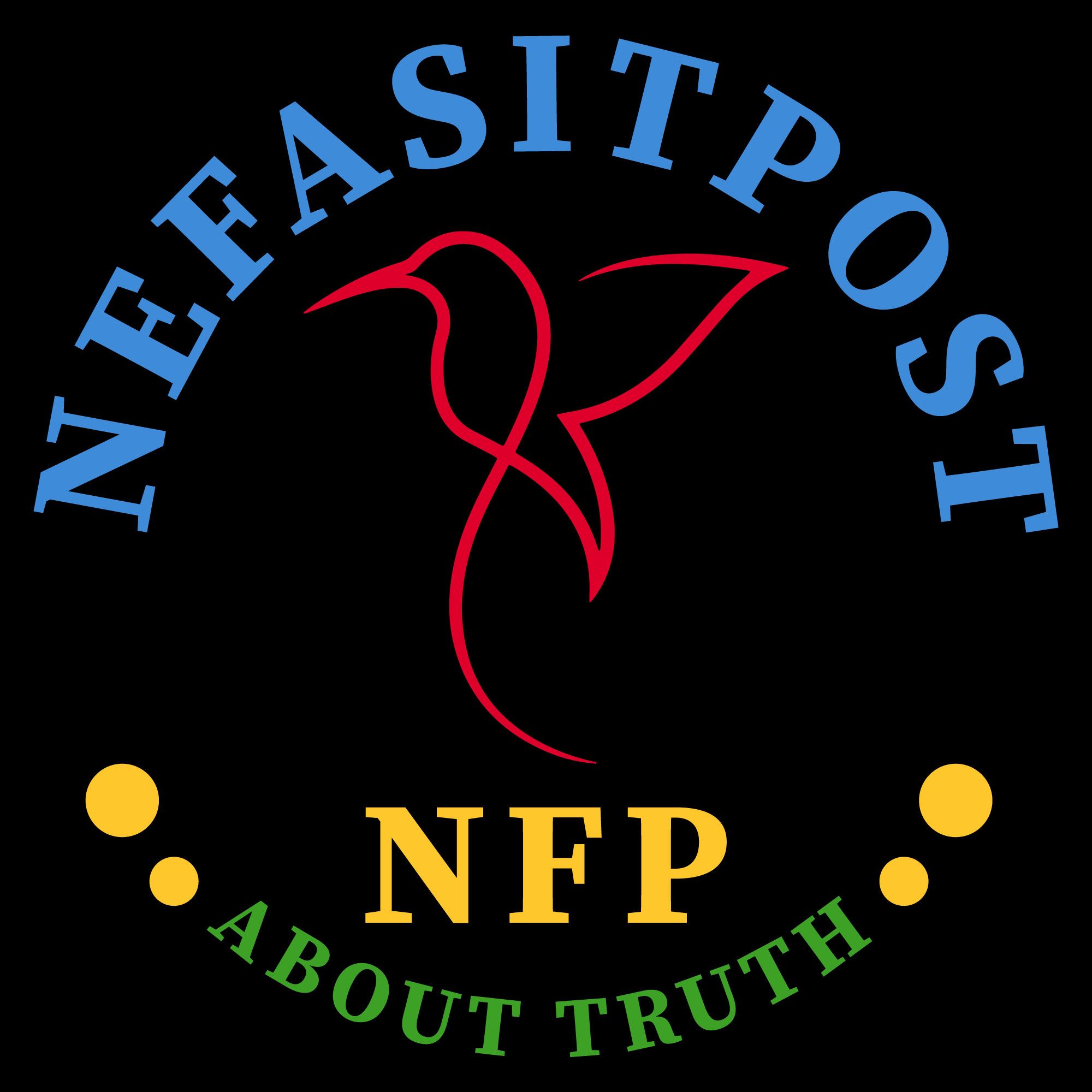
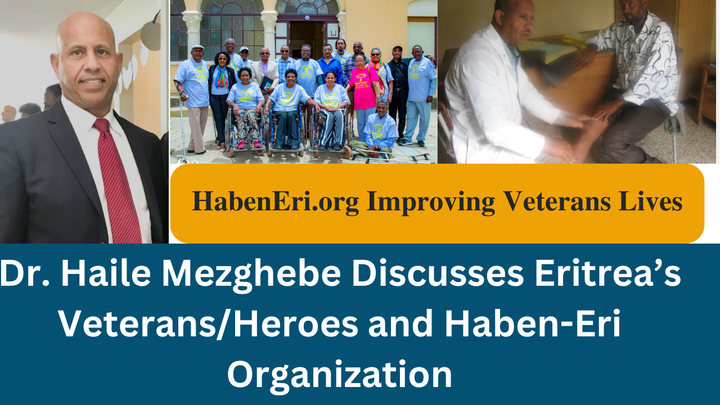
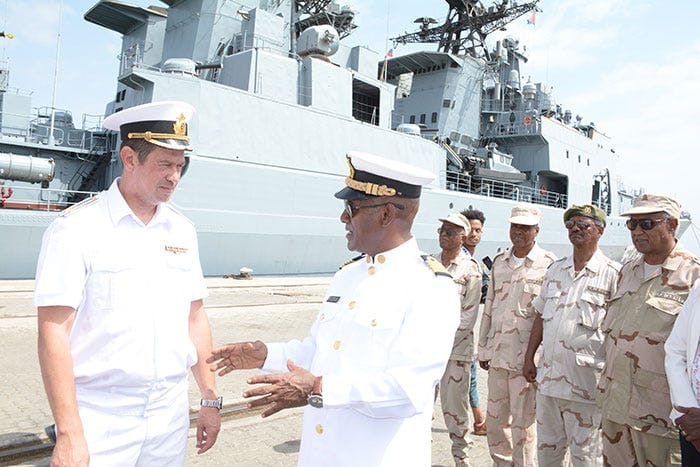
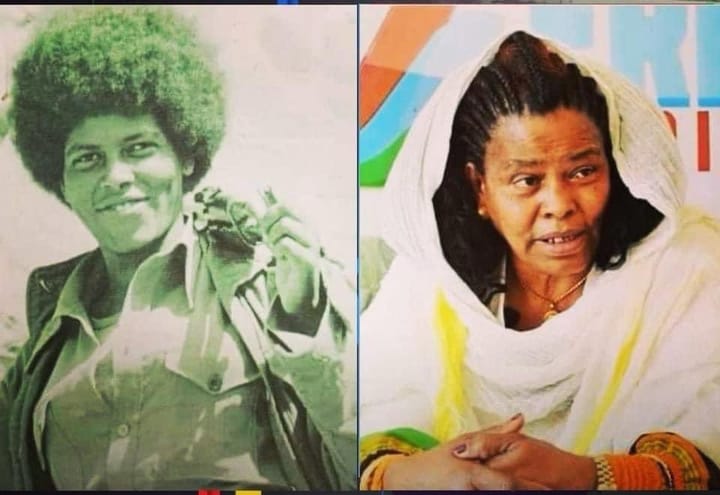
Comments ()